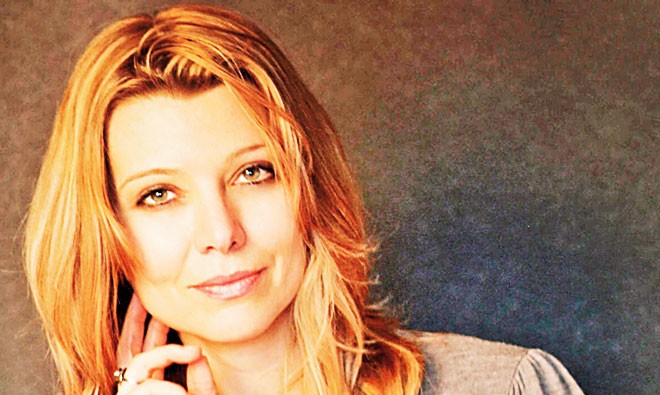

Readers round the world swooned over Elif Shafak’s 40 Rules of Love, an ode to Rumi, Shams of Tabriz and the Sufi soul.
The truly besotted went on to read The Bastard of Istanbul, The Gaze and The Flea Palace. She’s emerged as the other strong voice from Turkey after Orhan Pamuk. Attending the World Economic Forum in Davos she blogged about the importance of the novel…
I come from a land where politics is too heavy and memory is too short. Time runs at high speed in Turkey. From one week to another, from one day to the next, everything changes. Or at least that is how it feels when you are inside. International observers frequently complain about their inability to understand the complexities of Turkey. Little do they know that we, the local people, find it equally bewildering sometimes. It is a liquid country, my land, constantly flowing, evolving, becoming. It has not become yet. That could have been exciting, that sense of openness to possibilities, had it not been so unsettling.
So thunderous is the tumult of day-to-day politics that many aspects of social and cultural life are toned down, almost inadvertently, like whispers muffled by the fog. Turkish politics is heavy. It is also confrontational, masculinist, aggressively emotional and deeply polarized. I stroll by the Bosphorus, watching the curling mist, and wonder how could my voice, our voices, be carried over the water to other shores, to other lives. Likewise, how could the stories and the realities of people elsewhere be heard in our part of the world? That is when I go back to literature, again and again, for therein there are no frontiers.
The ancient and universal art of storytelling cannot be confined into national, religious, class or ethnic boundaries. There have been many times when the places described by the Irish writer Colm Toibin felt as familiar as the streets of Istanbul or the subjects written by the Israeli author Amos Oz were surprisingly close to home. Stories render the invisible visible and shorten distances. Literature is not about dividing people into communities or categories. It is the exact opposite; it is about connections.
The novel, more than any other form of creativity, is based on solitude. A novelist is alone while writing a book, just like the reader is alone while reading it. There we meet. In that zone of pure individuality and introversion, where there are no collective identities, even if only for a few hours or days. Novels may seem to take us on journeys around the world but, in truth, they take us on a journey within. We put ourselves in the shoes of another person, then another. While we discover strangers and foreigners we learn about ourselves. Categories start to lose their vehemence. In the world of fiction there are no Greeks or Turks or Muslims or Jews. The microcosm of the human being is our main focus. Once we strip humans of layers of identity politics it becomes easier to understand the human soul. As Susan Sontag said, good literature educates our hearts.
Politics, by nature, is based on dualities. There needs to be a distinction between "us" and "them", and the presumption that us is better than them. In places such as Turkey, where pluralistic democracy is not fully internalized and freedom of speech not fully guaranteed the us-versus-them duality is always sharper. Literature, on the other hand, has no "them". In the art of storytelling, there is no Other. The Other is me.
So we speak different, if not opposite, languages, the writer and the politician, right from the start. Therefore, if you ask a novelist about her or his country you will get a different picture than if you ask a politician. The latter will tell you what he sees and the way he sees. The former will divulge what cannot be seen. The latter will relate what he hears, the way he hears. The former will tell you not only the stories but also the silences.
Elif Shafak is an award-winning novelist and the most widely read woman writer in Turkey. She is participating in the World Economic Forum’s Annual Meeting 2014 in Davos-Klosters. This article also appears on the World Economic Forum blog.